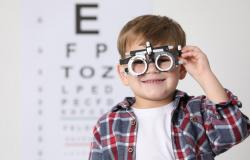Machines will never replace humans, according to the Quebec Bar. The professional order of lawyers calls for caution regarding the use of artificial intelligence.
Posted at 10:07 a.m.
Sébastien Auger
The Canadian Press
The President of Quebec, Me Catherine Claveau warns the population “against the shortcuts that we might be tempted to take by using artificial intelligence (AI) tools, which cannot replace real support from a legal professional.”
“The main mission of the Barreau du Québec is the protection of the public. There are ethical and professional issues surrounding the legal profession that are not covered by a machine. You have to be wary. It can never be a pure and hard legal opinion,” she asserts in an interview.
The Bar has launched a national advertising campaign to make people aware of the risks.
“There are tools available to everyone that give you the impression that you don’t need to go any further because they provide an answer to your question,” says M.e Claveau.
The message we want to send is that the answer you get is not entirely adapted to your context, since the data is depersonalized. There are nuances that cannot be provided by software.
Me Catherine Claveau, President of Quebec
She emphasizes that “the stakes are high because it could lead to a loss of rights”.
There are also potential privacy issues, she raises. “If you deal with a lawyer, all your confidential personal data will be kept. If you give confidential personal information to the machine, you don’t know how far it can go. There is a risk of being lost and unprotected. You must therefore be careful before using this software. »
“We encourage it, we do not prohibit it”
However, these tools can be an interesting starting point for the uninitiated. “The number one piece of advice is to say: if you have a starting point, go with that and call a lawyer to continue the analysis with you. Don’t rely on this just because you could get yourself into a complicated situation. »
Me Claveau points out that, unlike AI tools, lawyers are accountable. “If, for example, a lawyer makes a mistake, there is professional liability insurance which ensures that, if it causes you trouble or damage, you will be able to obtain compensation, which is not the case if the loss of rights comes from a machine. »
-Despite these reservations, the Bar does not demonize AI. On the contrary. After some consideration, the order ruled that the technology may prove useful.
“When we started talking, a few years ago, about the arrival of artificial intelligence, we were proactive, we asked ourselves the question whether we should be for or against it. We quickly realized that we couldn’t be against it. Artificial intelligence is now part of our practices. We encourage it, we do not prohibit it. »
To support legal professionals, the Bar created a guide to best practices on this subject last November. The document will be subject to change as technological advances occur. “Obviously, we will continue to stay on the lookout because things are evolving quickly. We will improve the guide over time to properly regulate this phenomenon,” specifies the president of Quebec.
The Bar also hired a lawyer specializing in the matter to help “develop both our position as a professional order and our orientation.”
Not a panacea
Among the approximately 30,500 members, many of them use AI. And for good reason: technology above all saves precious time.
Me Claveau gives the example of documentary research, which often requires going through a large volume of doctrine, that is to say all the works which expose and interpret the law.
“We often rely on precedents in case law on the doctrine. There are very serious companies, like CanLII, which develop increasingly sophisticated research software and which increasingly use artificial intelligence. Cross-referencing certain data can really save us a lot of time rather than spending hours in the library. »
She also cites judicial preparation. “When we have to prepare interrogations, cross-examinations or a pleading plan, we can give data to the machine, which will help us structure our thinking. In terms of form, you can save a lot of time. »
Here again, caution is required.
I reiterate that it is always necessary for a human to go over the machine to see if the proposed model really adapts to the client’s situation. You must continue to analyze, consult your colleagues, work as a team and validate yourself.
Me Catherine Claveau, President of Quebec
Me Claveau insists that “it is not a panacea.” “These are tools to facilitate and lighten our work, but we must remain vigilant, we must use them sparingly. »






